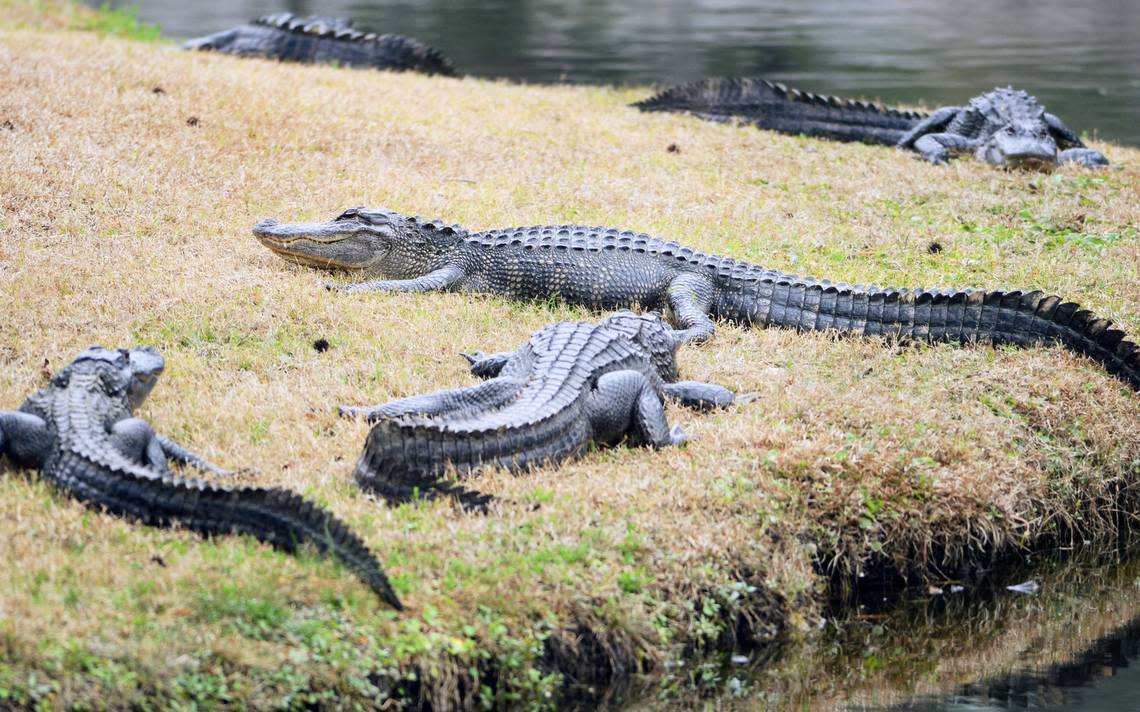Watch out! Alligators will soon be breeding in SC. Here are 5 things to know
As April begins to wind down, it’s important to make a note that sea turtle season isn’t the only one that begins in May. This upcoming month will also be the beginning of alligator breeding season.
With courtship beginning sometime this month, mating season for these prehistoric reptiles takes place between May and June. Afterward, a female alligator will then lay a clutch of around 30 to 50 eggs.
Although the Lowcountry seems to have no shortage of alligators lurking in local lagoons, basking in the sun or even crossing roads from time-to-time, it’s still important to be informed, maintain a safe distance and use safety practices around these massive creatures.
Seeing an alligator while out and about can be both a startling and mesmerizing sight. Here are five things everyone should remember at all times, and especially during the next several months.
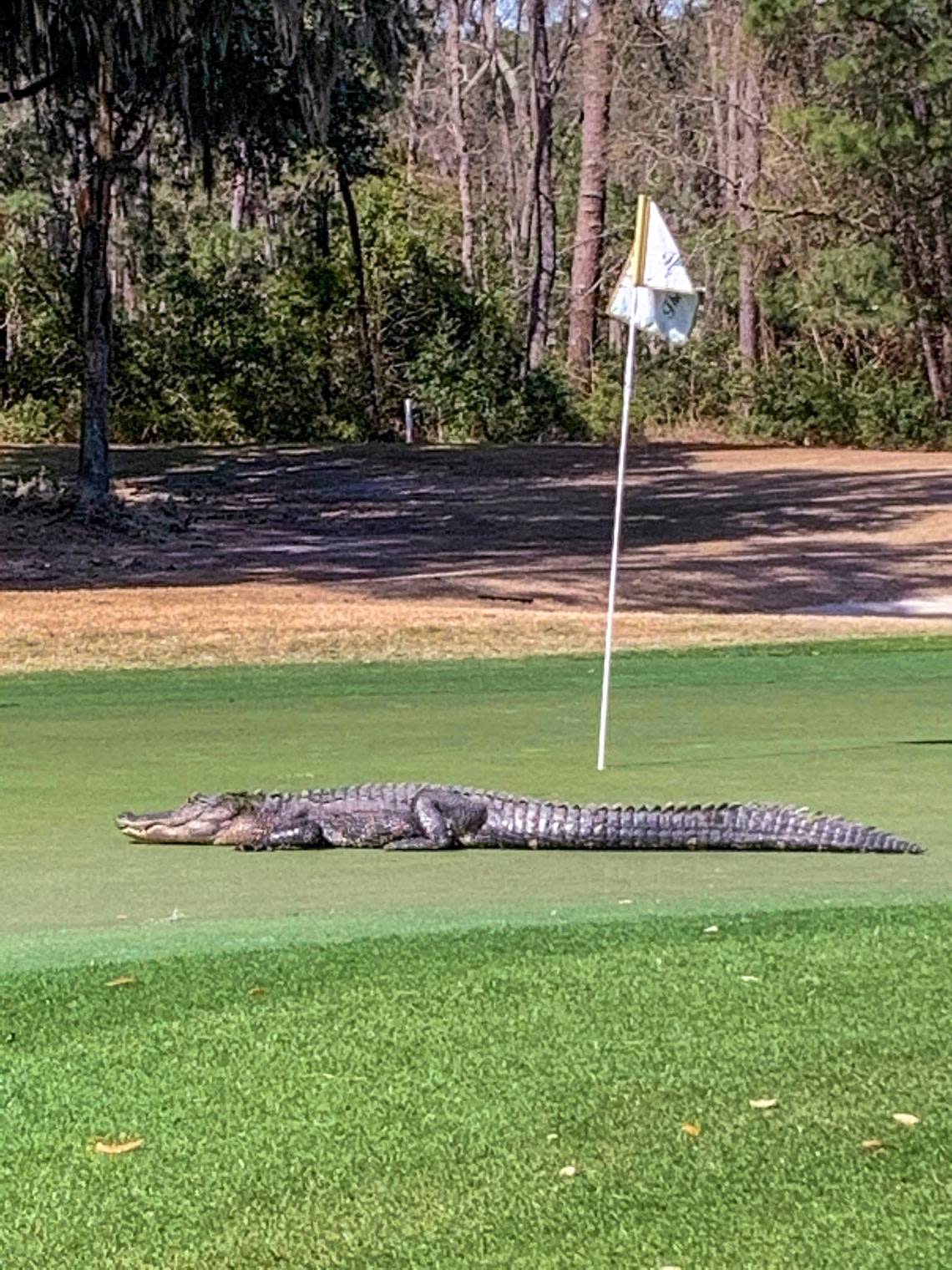
What to know about alligator reproduction
A female alligator will lay a clutch of eggs into a mound made from vegetation and the surrounding foliage, which can occur anytime from June through mid-July. The warmth of the mound is crucial to the outcome of an egg’s incubation period.
These eggs will have a hard outer layer that is more prominent after they are first laid with a soft, leather-like inner layer that gradually comes to the surface later in the incubation process, and are slightly longer and more pliable than a chicken’s egg.
After incubating for approximately two months, these eggs will hatch in either late August or early September and the hatchling alligators will emerge roughly 9 to 10 inches long, according to the South Carolina Department of Natural Resources (SCDNR).
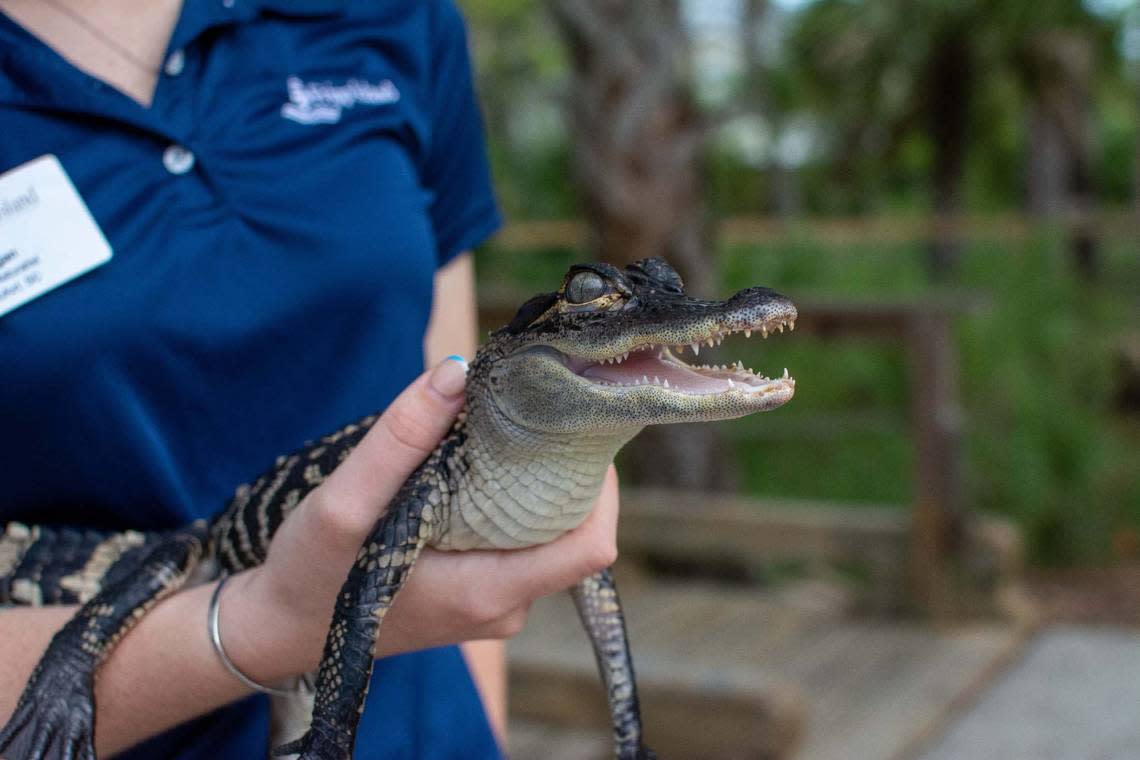
The female alligator will then stay with their hatchlings for up to one year until the start of the next breeding season.
Heard any deep bellows lately?
If you’re near any body of water, such as a lagoon, pond or lake, you may hear a deep bellowing noise.
This sound can send a chill down any unsuspecting passerby’s spine. Male alligators will “bellow” to attract and draw females to them as well as to mark their territory from other males and display dominance.
“Alligators bellow to communicate their body size to territorial rivals and potential mates. This helps them avoid conflict with rivals and attract females to their location. The lower the acoustic resonance of a bellow, the bigger the alligator making the sound is,” The Reptile Room states.
Alligators can be quite large
Alligators are much bigger, faster and stronger than you may initially assume.
Although the overall growth rate and speed of an alligator depends on several different factors, these reptiles can become quite large and should never be underestimated.

Male alligators can grow to more than 14 feet long and weigh up to 1,000 pounds in some cases and females can reach, or even exceed, a length of 10 feet and a weight of 250 pounds, reported the South Carolina Department of Natural Resources.
The overall growth rate of an alligator depends on several factors, which include diet, temperature and sex.
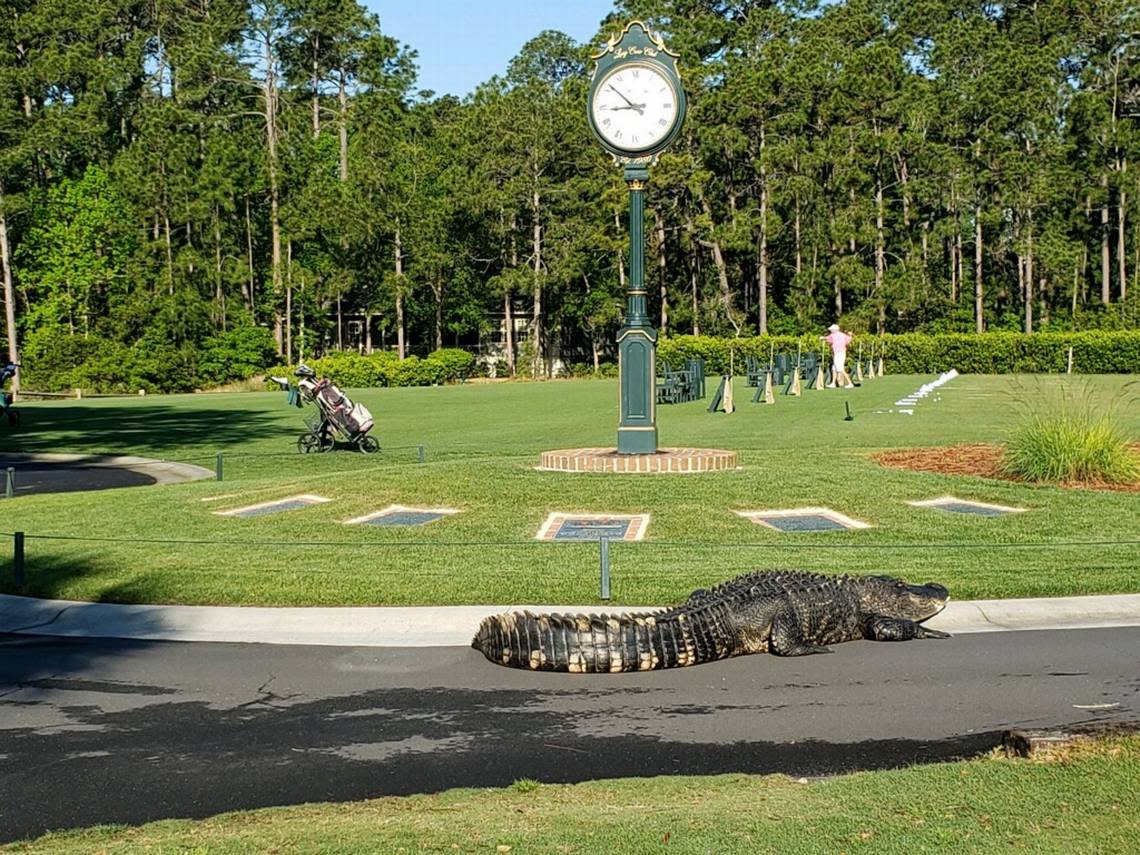
Keep your distance. Alligators are fast.
Although alligators are generally pretty sedentary, usually basking in the sun or lurking in the water, they may act to chase a person if they are disturbed, territorial of the area, protecting their nests, or in rare cases, hungry.
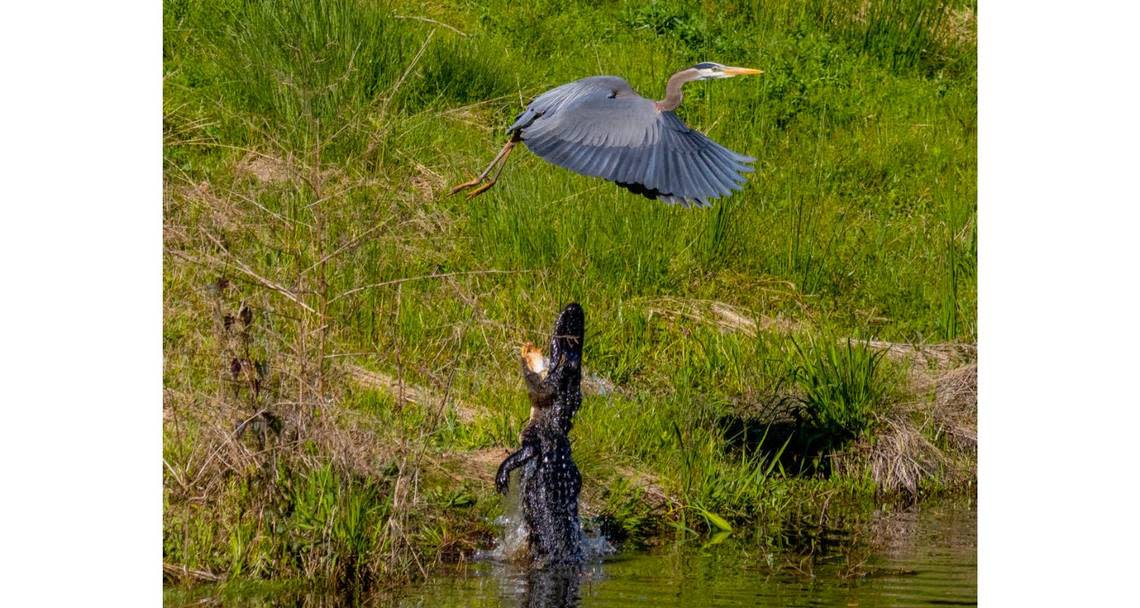
Alligators stalk their prey almost invisibly. With only their eyes above water and moving soundlessly, they can easily remain undetected before they attack.
Alligators can also seem invisible on golf courses or the edge of bodies of water when basking on inclined banks. These can make it quite easy for an unsuspecting person to accidentally walk up to one of these massive reptiles without their knowledge.
Alligators can swim at quick speed, and run even faster, however, these will only be in short bursts.
When an alligator is in the area or if you find yourself near a body of water in the Lowcountry, it’s best to keep your distance.
In addition, children and pets should always be kept away from alligators, alligator nests or bodies of water, as the potential outcome is not worth the risk. These sizable reptiles do not recognize the difference between domestic pets and wild animals and when hungry, will act on their initial hunting instincts.
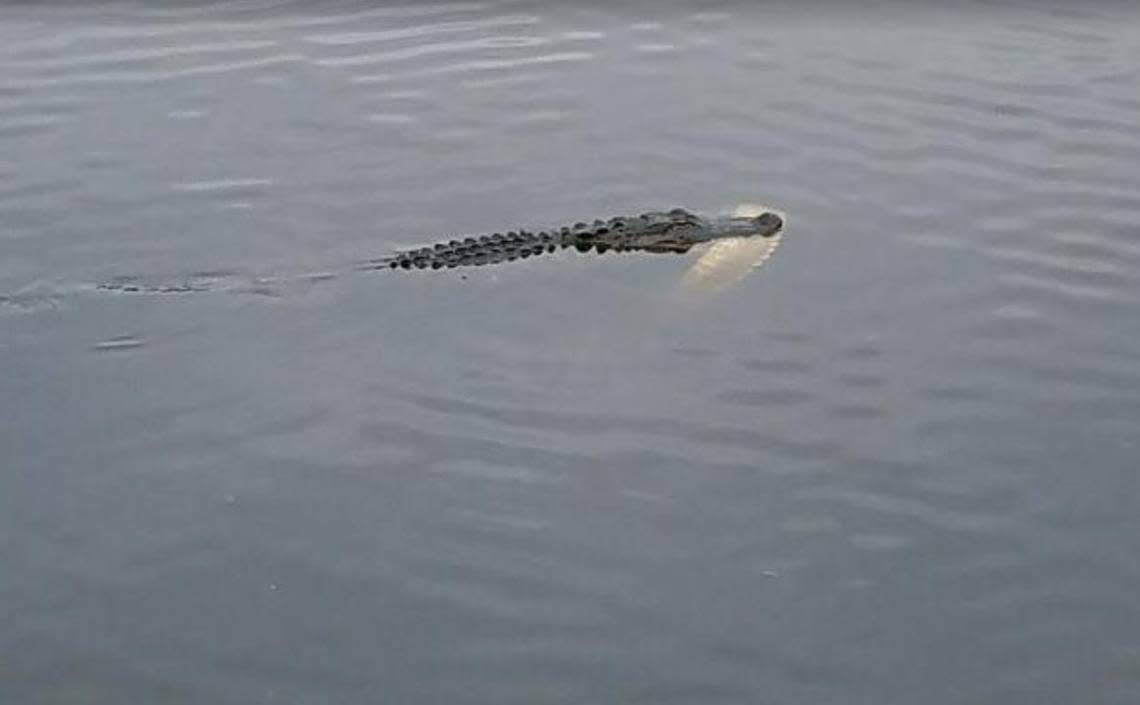
Never feed an alligator
Why can’t an alligator be fed?
An alligator isn’t like the animals you feed at a petting zoo.
Feeding an alligator is illegal and can cause a lot more problems than just human dependency.
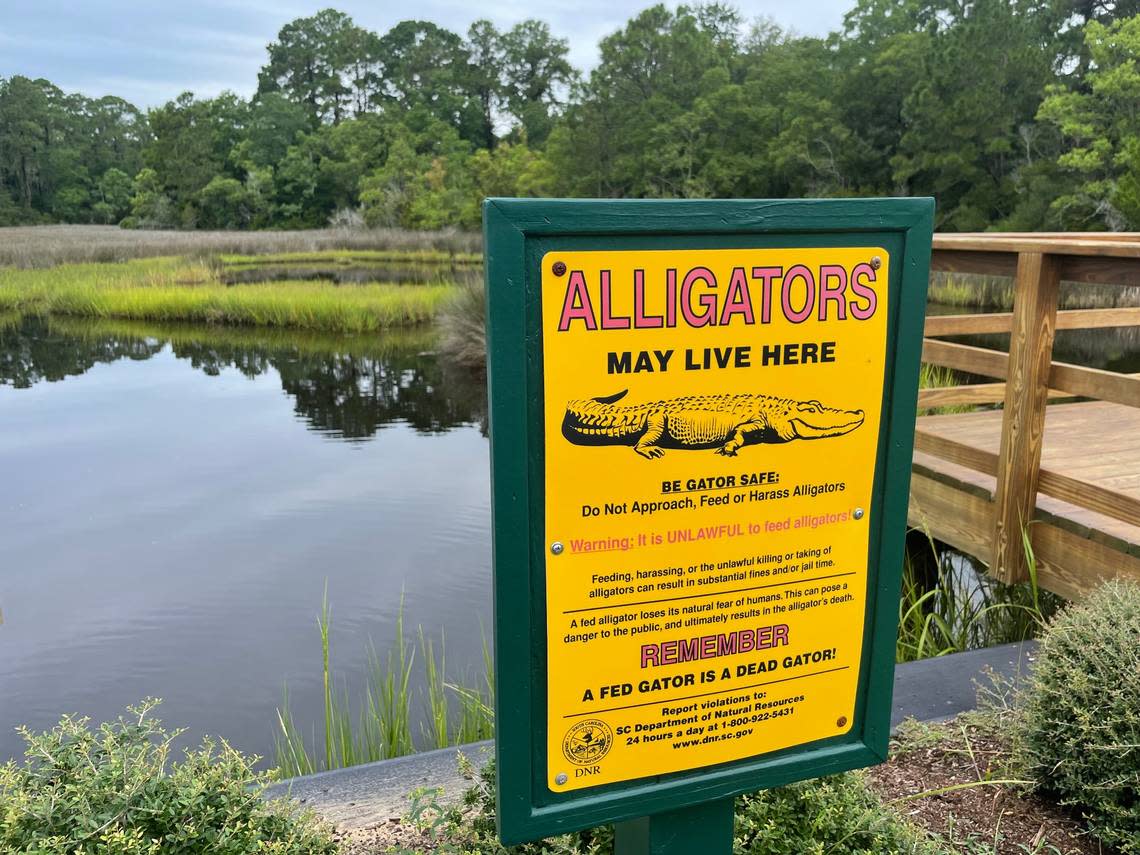
When an alligator is fed by a human, the reptile begins to form an association with people — this being that humans provide a source of food. This can make an alligator see people as more approachable, pushing comfortable boundaries, seeking people out and even possibly lead to an attack.
If a neighboring alligator is causing any problems around a home or other location, contact the local SCDNR office. Nuisance alligator complaint numbers per county can be found at https://www.dnr.sc.gov/wildlife/gatorc.html#:~:text=If%20an%20alligator%20is%20causing,you%20have%20a%20nuisance%20alligator. For Beaufort county, the phone number is (803) 625-3569.
